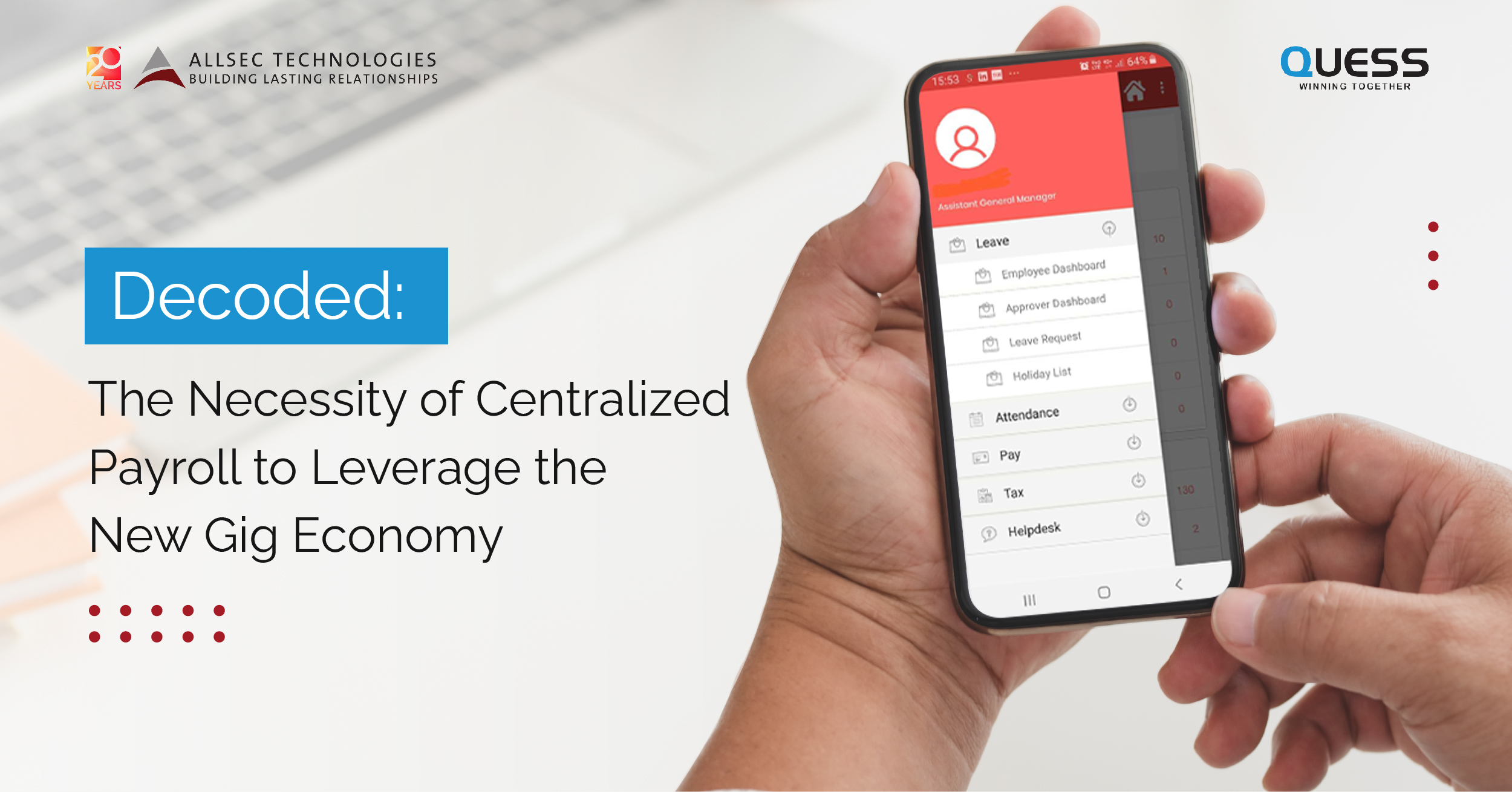
The necessity of centralized payroll to leverage the new gig economy
While the concept of a gig economy was introduced in the early 1990s, there has been accelerated adoption in the past decade. The onset of the pandemic has only further fueled this growth with the market growing threefold in 2020 as compared to 2019. And a recently published BCG report predicts another expansion of 90 million freelancer jobs within the next decade.
This shift will especially impact SMEs as they manoeuvre working models to find the one that best fits their business objectives. To stay compliant with the New Labour Laws of 2021 their existing payroll systems must also transform to accommodate freelancers and remain compliant.
The 21st Century Workforce
Demand for Subject Matter Experts and specialized workers is on the rise, with employers opening up more short-term opportunities. This change also introduces myriad pay scales, payment timelines, employee policies, and more. However, the new Codes stipulate that even the flexi-workforce must adhere to certain guidelines.
For example, all gig workers and contract employees must be onboarded as with every other employee. A centralized HR system is the only way to accomplish this seamlessly.
The existing system
Most companies have robust systems in place to accommodate the needs of employees. But in light of the demand for the gig economy, there is a roster of changes needed for traditional payroll management systems to be able to incorporate freelancers into the organization:
- Standard salary structure for gig workers
- Be compliant with new laws
- Run multiple payout cycles
The need for centralized payroll
A unified system can help avoid errors such as miscommunication, incompatibility of payroll with the compliance management system, and unintentional legal offences. Therefore, the right partner equipped with cutting-edge technology, an in-depth understanding of compliance, and diverse back-end services is the need of the hour.
Here is what companies should look for when it comes to hybrid payroll management:
- A salary structure that is compliant with new wage codes and a scalable payroll
- An automated smart system with employee and employer self-service operations.
- Tax declaration and information on year-end processing, along with indicative tax computation, Form 16 generation, and a one-time tax calculation.
- Reduced time in payment processing in line with monthly changes and the ability to run multiple simultaneous payout cycles.
- Automated generation of payroll compliance reports aiding in decision making.
Centralization – Galvanization to the new-age business model
The BCG predicts 24 million skilled, semi-skilled, and shared services may be delivered via the gig economy. The centralisation of payroll will be crucial to make the most of this scenario.
Allsec can ensure flawless integration of payroll and compliance for all workforce types. Reach out to us to know more.


